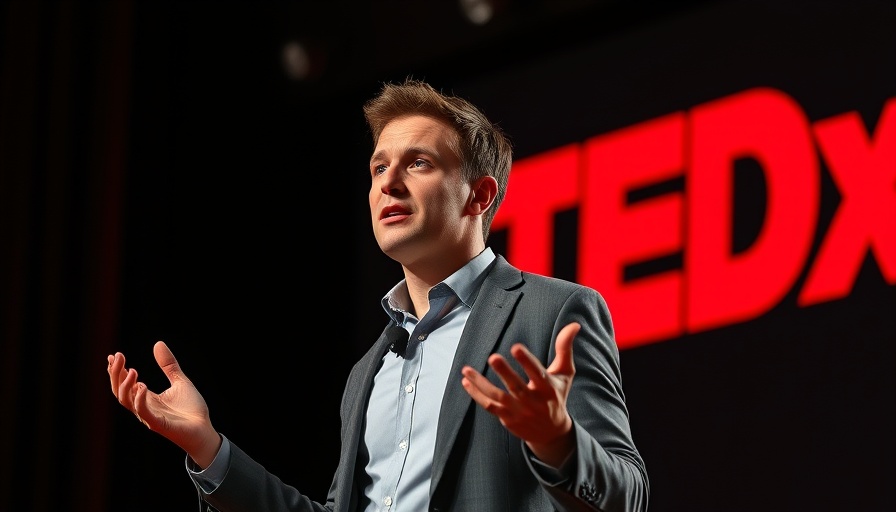
The Peculiar Patterns of History: Are We on the Brink of WWIII?
The thought of a looming global conflict can be daunting. The TEDx talk titled "Are we heading towards World War III?" by Heni Ozi Cukier provides a sobering exploration of historical precedents and their relevance to current global dynamics. It highlights not just the inevitability of change but also emphasizes critical parallels with past conflicts. In these tumultuous times, understanding these historical patterns can offer valuable insights into our contemporary world.
In the TEDx talk "Are we heading towards World War III?" Heni Ozi Cukier delves into historical patterns that illuminate the complexities of our current geopolitical landscape.
Understanding the Social Dimension Through Technological Progress
Cukier argues that technological innovations, while often viewed as progress, have historically bred social anxieties. Before World War I, advancements from the second industrial revolution unsettled established norms and created insecurity among workers displaced by machinery. Fast forward to the interwar period, and fears of "technological unemployment" dominated the discourse, focusing concerns on whether machines would render human labor obsolete.
Today, we find ourselves amidst a similar technological renaissance driven by AI and digital platforms. This era's innovations promise much yet bring with them a duality of benefit and risk. The anxiety surrounding job displacement and the threats to privacy in our increasingly connected lives echo the sentiments felt during pivotal moments of the past. Recognizing this link may empower us to frame a future that embraces technology while mitigating its disruptive potential.
Economics: Prosperity vs. Imperatives
Another critical lens through which Cukier examines the prospects of impending conflict is economic stability—or the lack thereof. Historically, many believed that economic prosperity inherently prevents war; however, the reality is more nuanced. The dynamics surrounding both World Wars show that ambition, fear, and political machinations often take precedence over economic considerations. For instance, while Britain and Germany were economically intertwined before WWI, miscalculations led to an explosive conflict.
In today's context, the COVID-19 pandemic reshaped how nations view economic interdependence, revealing vulnerabilities in reliance on rivals. Economies are rapidly moving toward self-sufficiency and economic nationalism, reminiscent of pre-WWII sentiments. Understanding this economic outlook can illuminate strategies for fostering international collaboration while safeguarding against triggers for potential conflict.
The Price of Polarization in Political Landscapes
Political polarization represents another foreboding factor in assessing the risk of global conflict. Cukier points out how societies plagued by division often lead to violence—a lesson evident both in the prelude to World War I and the tumultuous years leading up to World War II. The January 6th insurrection and rising political violence in various democracies illustrate current parallels that could potentially lead to destabilization.
If polarization continues to escalate, any hope for compromise diminishes, laying the groundwork for conflict. Cukier’s analysis underscores the need for reconciliation and trust in political institutions to avert such an eventuality. The question thus becomes: how can societies bridge these divides and promote political unity?
Lessons From Military Alliances: The Path to Global Conflict
At the heart of Cukier's concerns lie the military alliances that have historically propelled regional disputes into global wars. The fragile balances of power present in contemporary geopolitics carry echoes of the past. Consider the pre-World War I alliances: a regional skirmish escalated due to entangled agreements, precipitating a catastrophic fallout.
Today, alliances among nations such as China, Russia, Iran, and North Korea threaten to replicate this phenomenon. If these nations strengthen their ties, we could see a perfect storm of military aggression and intervention by allied forces, echoing the catastrophic moments of history Cukier refers to. Understanding these alliances and their motivations can inform strategic responses that promote peace, rather than exacerbate tensions.
A Call to Embrace History’s Lessons
In conclusion, Heni Ozi Cukier’s TEDx talk serves as a critical reminder that history, while not repeating, often reveals resonant patterns we would do well to heed. As professionals navigating this uncertain landscape, recognizing the interconnectedness of technology, economic stability, political unity, and military alliances can help us forge paths towards constructive engagement and away from conflict. By fostering innovation across sectors, advocating for inclusive dialogue, and building resilient systems, we can unlock the full potential of our societies rather than letting past mistakes dictate future outcomes.
In light of the insights gleaned from history, it is essential to remain vigilant and proactive. Engaging in meaningful discussions on how we can apply these lessons today is the first step. We encourage you to reflect on our collective responsibility and the power of innovation to reshape our future. Let's collectively inspire change, creativity, and solutions to navigate the complexities of our global landscape.
 Add Row
Add Row  Add
Add 




Write A Comment